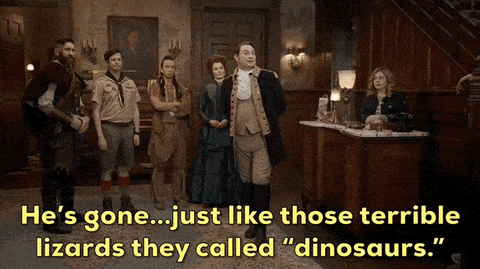My school report said that I was every inch a fool. Fortunately I was not very tall.
Howdy, this is UniScoops! Your intellectual lighthouse, guiding you through the fog of information.
So, without further ado…
Here’s a taste of what we’re serving today:
Who turned off the lights? 💡
PLUS: WW1 Poetry, Glassy Gels, and A Dam’s Downstream Consequences.
PHYSICS
Who turned off the lights? 💡

Actually, please don’t.
The Sun is the only star in our Solar System; it is the only natural source of light and heat in our Solar System, and it is located some 93 million miles from Earth. What would happen if it suddenly disappeared?
Truth is, at least for the first eight minutes or so, we wouldn’t notice. This is due to the speed at which electromagnetic waves (including visible light) travel in a vacuum. Visible travels at a little under 300 million meters per second. So, technically, we observe the Sun from Earth eight minutes in the past. We even see our closest neighbour, the Moon, one second in the past.
Okay, so after eight minutes, we would find ourselves in complete darkness and without the Sun’s warmth; Earth would rapidly become a much colder place. Fortunately, the Earth retains heat fairly well, so humans wouldn’t instantly freeze. Though, life would get immediately much more difficult.
Without the Sun’s rays, photosynthesis would cease. All plants would die and, consequently, all animals that rely on plants for food – including humans – would die too. Although some resourceful Bear Grylls-wannabes may be able to survive on a sunless Earth for weeks (possibly months), ultimately, life without the Sun would become unsustainable, leading to the gradual demise of all living things.

Without the Sun, we would all be gone …
💡 Things to consider
Snap back to reality: Alas, scientists do not believe this will happen anytime soon. In fact, they predict that the Sun won’t die for another five billion years and that there are other events that are far more likely to happen which will lead to the death of the majority of the human race before the death of our Sun. Can you think of what may be more likely to lead to the extermination of the human race?

Still going strong.
Survival instincts: Our planet has not always been the toasty temperature that it is today (although, sometimes it may not feel like it). Even during mass extinction events like the first Ice Age, and the second Ice Age, and the third Ice Age, and the… you get the idea - some living things did manage to survive. As the Earth is thrown into yet another ice age, which animals are best adapted for survival? What can we learn from these extremophiles and organisms that live in permanently dark and cold environments about potential survival strategies? How long do you think you would survive?

Olaf would thrive …
The end of life as we know it: There are many different religions and cultures across our planet that all conceptualise different beliefs about life and our place in the universe. Given current events, how do you think these varying beliefs may influence responses to such a scenario? What are the broader philosophical implications of a sunless Earth on our understanding of life and the universe? (pssst… have look at this previous UniScoops for some ideas!)
🔎 Find out more

🍒 The cherry on top
📝 WW1 Poetry: Can poetry help us make sense of the First World War’s horrors? This short film, rendered in cut-out puppetry, is made up of three poems exploring war from the perspective of those who fought in it. An interesting watch if you’re interested in History or English.
👨🔬 Glassy Gels: A new class of materials called “glassy gels” are very hard and difficult to break despite containing more than 50% liquid. Coupled with the fact that glassy gels are simple to produce, the material holds promise for a variety of applications. Find out more in this article if you’re interested in Chemistry.
✝️ Blaise Pascal: Blaise Pascal, a mathematician and a Catholic theologian, born 400 years ago, left a deep and lasting influence on the world that can be felt today. Learn more if you’re interested in Religious Studies or Philosophy.

👀 Keep your eyes peeled for…
8th July:
9th July:
10th July:
12th July:

🗳️ Poll
How was today's email?
That’s it for this week! We’d like to thank this week’s writer: James Johnston (Physics).
💚 Like UniScoops?
Forward this edition to someone who’d love to read it for extra kudos!
📢 Want to tell us something?
Reply to this email to tell us what you think about UniScoops, or to give us any suggestions on what you’d like to see.
🧐 New to UniScoops?
Get your weekly fix of academia with our fun, thought-provoking newsletter. No jargon, no fluff, just the good stuff. Subscribe today.
